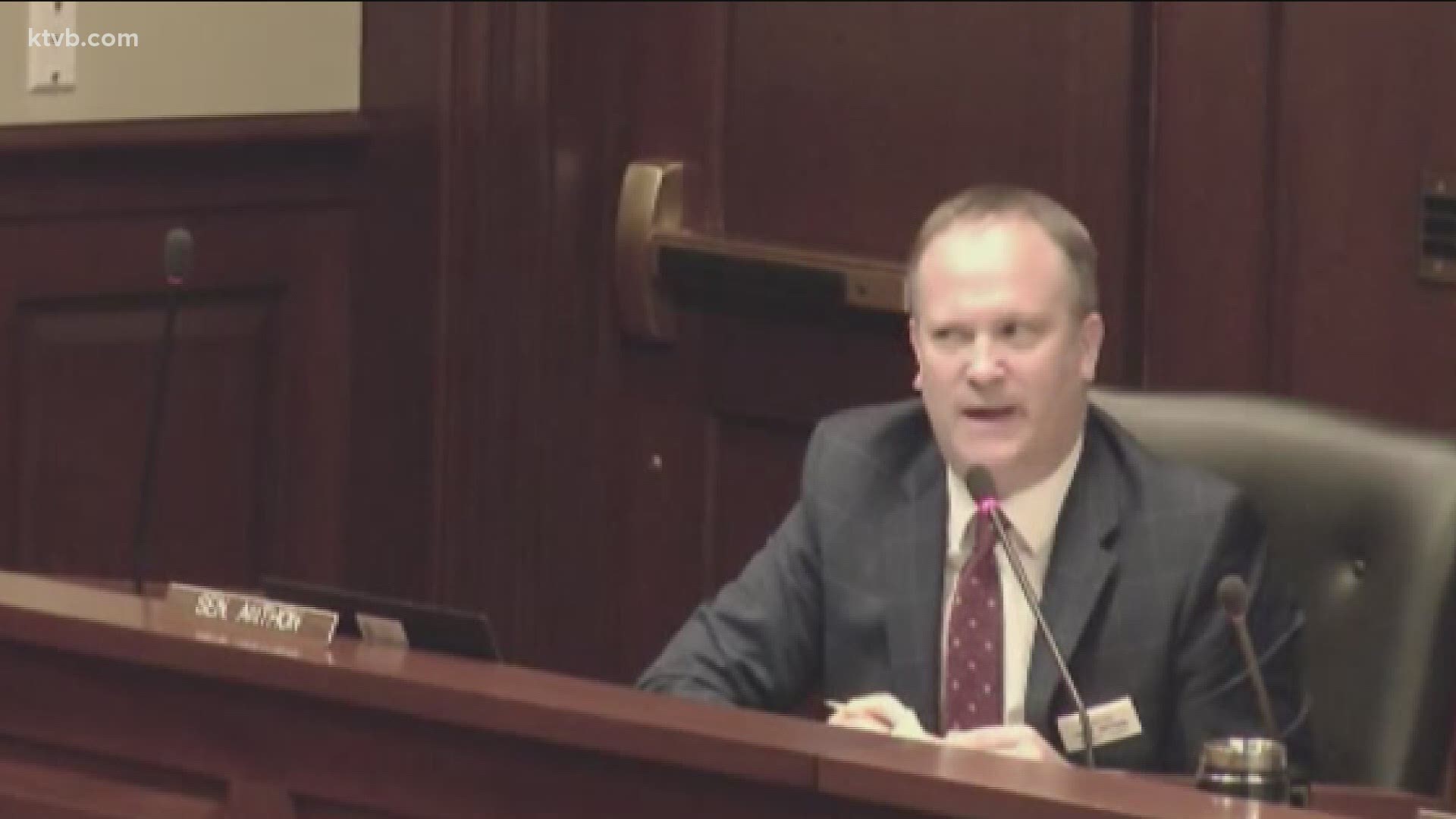BOISE, Idaho — The first week of the 2021 Idaho Legislative session wrapped up on Sunday, and there has already been a lot of action by lawmakers.
Republican lawmakers introduced a number of bills that, if passed, would limit Idaho Gov. Brad Little's executive powers, as many do not approve of some of his decisions made during the pandemic.
Some lawmakers also feel they deserve more of a say in said decisions.
“We fundamentally disagree on how he has handled the pandemic,” Rep. Brent Crane (R-Nampa) said during a committee hearing on Thursday.
Idaho lawmakers have introduced nearly ten pieces of legislation that would limit the governor's executive authority. All of them have only been introduced, which means they haven't received full committee.
“This is an effort to restore a balance of powers in our state government,” Idaho Senate Majority Leader Kelly Arthur Anthon (R-Burley) said on Wednesday.
One of the bills introduced would prevent the governor from changing or suspending any part of the Idaho code. Little did this in 2020 when he changed the May Primary Election to an all-absentee election due to the COVID-19 pandemic.
“We prohibited the government and any governmental entity or political subdivision from limiting or suspending any rights guaranteed by the United States Constitution,” House Assistant Majority Leader Rep. Jason Monks (R-Meridian) said.
That same bill would also put a time limit on how long an emergency declaration can stay in place.
“If they've existed more than 30 days, they are terminated,” Monks said.
In Monk’s bill, disaster emergencies would terminate under one of three conditions: if the threat or danger has passed, if 30 days have passed, or the legislature can choose to end it through passing a concurrent resolution.
Another proposal would allow the legislature to call itself back into session if certain requirements are met. The requirement is that 60% of both the House and Senate would have to agree. The legislature could then convene for a special session within 15 days of that request.
Currently, only the governor can call the lawmakers back into session.
Lawmakers also want to put an end to Idaho’s current emergency declaration. There are two versions of this proposal, one from the House and Senate.
The House proposal would prevent Idaho from receiving more federal funding, but the Senate version wouldn't.
“We're trying to be responsible;” Senate President Pro Tem Chuck Winder (R-Boise) said. “We're trying to be sensitive to really meet the needs of our people but at the same time getting rid of the restrictions that have been placed on those same citizens.”
Sen. Grant Burgoyne (D-Boise) said legislation that limits the governor's power in emergencies will have long-lasting impacts.
“The things that we miss, this time around, a future legislature, a future governor, a future State of Idaho are the ones who are going to have to deal with it,” he said.
Lastly, another proposal would take away the restrictions on gatherings. It would allow any size gathering at any location.
“You could have from one to infinity individuals that choose to meet at an event,” Crane said on Thursday when introducing the bill.
Currently, under Gov. Little’s modified Stage 2 order, gatherings of more than 10 are prohibited, but there are several exceptions, including religious gatherings.
There are three different forms of legislation that have been introduced: a bill that would need to pass both chambers and then be signed by the governor to become law. If the governor vetoed it, the Legislature could override his veto.
Another piece of legislation is a concurrent resolution, which both proposals that would end the current emergency declaration are. This just needs to pass both chambers and then it goes into effect. No signature is needed from the governor.
Lastly, there is a joint resolution. This needs to pass both chambers with a supermajority and then needs to be approved by the voters, as a joint resolution would be amending Idaho’s Constitution.
The legislation that would allow the legislature to call themselves back into a special session is a joint resolution.
The earliest opportunity voters have to approve it isn’t until 2022.
Watch more Idaho politics:
See all of our latest political coverage in our YouTube playlist:

